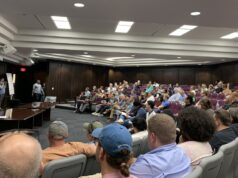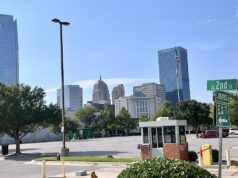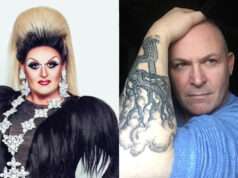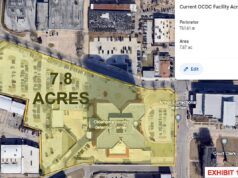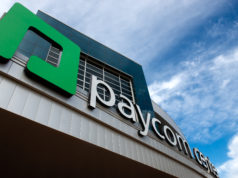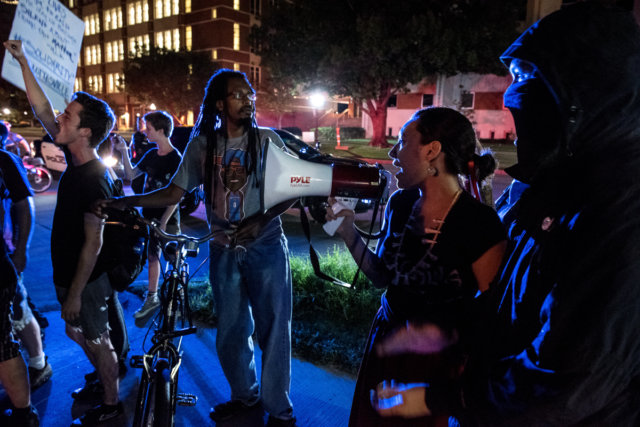
In recent weeks, the Oklahoma City metro has seen a rash of racist vandalism. This is of course only the latest in a history of open racism in our state. While it is good to see so many in our community publicly denounce those hurtful acts, less obviously, and I would argue more damaging, forms of bigotry happen every day. Sadly, I’m not convinced my allies really understand that.
Racism is more than hatred. I saw individuals and leaders of many political ideologies come out against the clearly racist and hateful messages sprayed on the Oklahoma Democratic Party Headquarters and Chickasaw Nation buildings in Oklahoma City, and later, in Norman at a school and other locations.
What troubles me the most about this situation is how it is clear to most everyone to recognize this as racism, yet many people do not recognize the unbalanced systems that are a part of everyday life for people of color, religious groups, sexual orientations and physical abilities. In other words, racism and bigotry aren’t just defined by overt actions like the graffitti, but also in everyday interactions and systemic acts of exclusion. These inequalities even manifest themselves in our our conversations about more diverse representation.
Why reflecting diversity matters
As Oklahoma becomes a more diverse state, we should consider not just how to make our organizations reflective of this but also why we should. Our state’s public schools are illustrative of this trend, with over half of Oklahoma students being non-white. I have a childlike excitement about this growth and the women, LGBTQ people and people of color who have recently been elected to office, including Jame Cooper and JoBeth Hamon on Oklahoma City City Council and Amanda Sandoval on Bethany City Council. I’m inspired by the growing conversations about the need and value of diverse representation among our communities even beyond elected offices. I do, however, remain skeptical.
Those of us from traditionally marginalized communities are often eager to explain our worldview, because it is based on how society has responded to our presence as gay, trans, black or brown. There is value in that point of view. We thoughtfully shift political and social approaches that any number of organizations have to consider. While more of those organizations are “inviting us to the dance,” but on what terms? Are we there to be a rubber stamp of approval from the [insert marginalized group] community, expected to maintain the status quo? Or are we being asked to participate because of the caliber of our ideas? We want more than our presence to be valued, we want our engagement, input and even critique to be just as heard as the other voices in the room. You can’t have my black body without my blackness. You can’t have a woman in the room without their womanhood. We are not confined by our identities, but we are empowered and deeply informed by them. We are not defined by our oppression, but we recognize our perseverance is an overlooked value.
It isn’t just about making your organization more diverse through hiring, it’s also in how you treat your employees. Your intent can be pure, but execution can still fall short of the goal. Employers should consider whether the language they use in their organization is inclusive, when identifying or making assumptions about workers’ sexual orientation for example. A similar review of procedure should take place with a company’s anti-harassment policies. Leaders and managers should ask themselves “Does my organization’s policy also reflect the needs of non-white, non-heterosexual, non-Christian employees?”
I am an Okie
In his piece “I, Too” poet Langston Hughes explains that he is the “darker brother” and when company comes, he is asked to leave the room. However, he says “Tomorrow, I’ll be at the table when company comes. Nobody’ll dare say to me, “eat in the kitchen,” then. Besides, they’ll see how beautiful I am.” He ends the poem “I, too, am America.” Hughes wrote this piece in response to fellow poet Walt Whitman’s “I Hear America Singing,” written nearly 6 decades prior. Whitman explains that he can “hear America singing” from the carpenters to the woodcutters. Whitman was attempting to recognize all of the hard-working Americans that harmonizes our democracy and nation.
In my own assumption, Hughes realized that perhaps his, and other black people’s, melodies were not included in Whitman’s chorus. So Hughes proclaimed “I, Too,” sing America’s song. Can’t you see my beauty? Can’t you hear my voice?
In the same spirit, I, too, am Oklahoma. I’m an Okie through and through. Some of my ancestors were forced to this territory in the Trail of Tears, while others came to this territory soon after the land run seeking opportunity in what was envisioned as a Black majority state by E.P. McCabe. History aside, I’m here now. Many others are here. Our community is mosaic of many beautiful people of diverse backgrounds, it is time our leaders recognize, empower and uplift these persons and their voices for the enrichment of our society.










